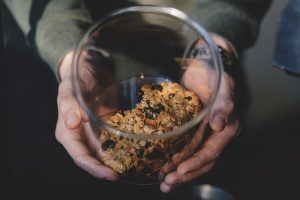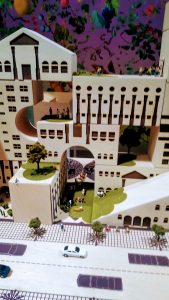All great change is preceded by chaos
During the next 12 months, I prepare to help my daughter navigate her final year of full-time school and for the first time in a long-time, I have considered what the world of thinking about a career might look like
Guiding clients through the constant changes facing investment portfolios has been my world for over 25 years now. I have navigated recessions, systemic crashes, rallies, booms, political uncertainty and a constant hum of change throughout my career
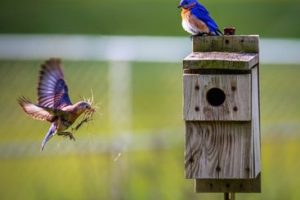
The next 25 years or so, will continue to challenge investors and the workforce, as they chase the speed at which technology accelerates and the resulting disruptions compound.
But I guess our ancestors have experienced it all before, Industrial Revolution, World Wars, discovery of oil, mobile phones, global connection to name a very small few.
Globally, the spotlight appears to be shining on climate, which is an area of investment strategy I have focussed on since opening Aspen. Investors historically have been best placed to contribute to new and emerging industries and, in relation to our planet, they can invest in solutions.
Structural change to economics
Successful investors are used to looking ahead, seeking out innovation and investing for the future.
We have become used to a model where products are created, used and then discarded
What we are searching for and what appears to be clear, is that we need to find a more circular approach to life (thanks, Mufasa), where we create, use and re-use

Food, Waste and Sustainability
The desire for more sustainable food is growing
Distance between food and fork has become stretched, with supermarkets making summer fruit available all year, flying exotic veg to our plate, which some believe has also created a distance in our relationship with food
Here’s a couple of great ideas I have seen recently
-
50% of shipping containers transport goods between China and North America are returned empty. That’s around 13 million containers just containing air
What if they were filled with collapsible Growframes, a hydroponic farming system, essentially creating empty spaces into small mobile farms
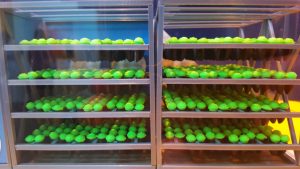
-
Coffee grounds, while straws are the enemy, what about the tons of used coffee grounds going into landfill every day?
How about growing mushrooms from them, or utilising the materials to make cups, shoes and disposable & compostable piggy banks
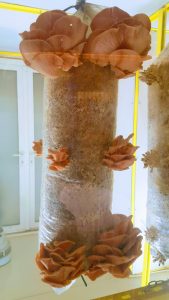

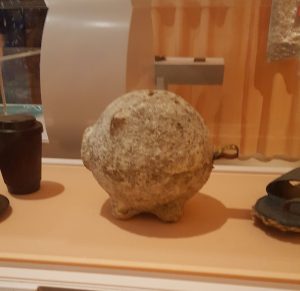
-
Animal bi-products & waste are prevalent in the waste chain. An inordinate amount of cows blood and manure is disgarded daily, but once again maybe this can be converted into utensils, by combining the charcoal of vegetable waste and Urushi (Japanese lacquer) to act as a glue to hold the product together
It’s not all about sustainability, it’s about how our relationship with the rules of food might need to change (don’t play with your food, use the right knife and fork)
-
Research has shown that people with dementia drink 84% more liquids when served in brightly coloured cups
-
Changing the shapes and design of utensils to help people with cognitive impairments
-
Reconstruct cities to incorporate the green pasture being lost
-
Seedbanks are now an important part of our infrastructure. Mexico has over 60 types of corn. But, industrialisation caused a sharp decline in species and, therefore local employment. Now these are being re-planted long-lost species and creating secondary incomes to farmers
The World’s 7th largest economy
Don’t @ me on this, it’s an important perspective, based on the perceived Gross Domestic Product we extract from its resources and their value to various industries
This Blue Economy is a big issue for us all and in the World Ocean Summit and subsequent commissions, there is a great deal of movement and need for investment in solutions to Protect, Impact and create Solutions.
The Blue Economy will require a great deal of expertise and long-term strategy, providing for an incredible growth opportunity for new industry
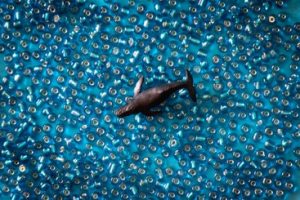
Impact Investing
The way that we viewed ethical investing over the last few years has started to change
Historically, Ethical meant Avoid (weapons, tobacco, alcohol, animal testing, etc)
During 2015, the UN published their Sustainable Development Goals, with a 10-year target date. These SDG’s have become a regular part of investment discussions, with the expectation that Impact Investing will be the next big driver for growth
While this has been prevalent in some market places, the private and retail markets are just starting to take note. Two fund managers have launched Positive Impact funds this month.
One of the key drivers is the inter-generational transfer of wealth, and the younger generations care and want this style of investment in their portfolios
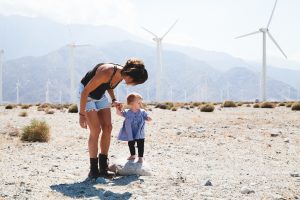
Societal changes, in smaller economies form a large part of the SDG’s, which will have the effect of benefitting emerging economies, which those countries desperately need
To put some of the growth in this sector in perspective, the Danish renewable energy firm Orsted, moved from fossil fuels to green energy around 10 years ago.
It now owns most of the wind farms offshore in UK, Germany and Netherlands. Its current Price/Earnings ratio is 24.3 times, meaning for every £1 invested a UK investor would receive £23 income or return
Other styles of Impact Investing will include childcare and dependent care provision packages as part of salaries, so that parents can return to workplace with greater ease
In 2001 you had a 50/50 chance of finding a beach in the UK where the water was fit to swim in. Now 92% of the UK’s beaches are deemed “exceptionally clean”
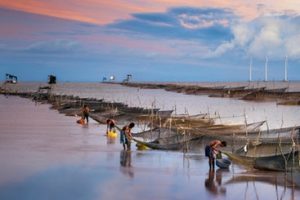
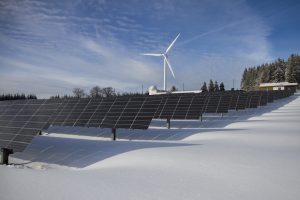
Money where my mouth is
 To close my own circle, I have saved regularly into an Investment ISA for my daughter and when she reaches the point of deciding where education or career goes next, we will have a conversation, where she gets to choose between spending or borrowing for education, or keep going and save for housing (trips to the Maserati showroom are barred)
To close my own circle, I have saved regularly into an Investment ISA for my daughter and when she reaches the point of deciding where education or career goes next, we will have a conversation, where she gets to choose between spending or borrowing for education, or keep going and save for housing (trips to the Maserati showroom are barred)
By saving regularly, I can explain the consistency of application, even though there were times when spending seemed more agreeable than saving
In a bid to make the investment process relevant, I have invested in funds that specifically target Robotics, Smart City infrastructure and Water provision, which I feel will resonate with her own interests and view of the future
Smart city funds seek out new and ecological ways that cities are developing, transportation, waste, energy and social cohesion
Water funds invest in companies enagaged in the processing, delivery and technological and environmental services of water provision
Final thoughts
If only I had a £1 for every sentence that went “wish I’d bought my gran’s house in the 90’s”, “wish I’d bought those Bitcoins earlier”, “should’ve bought those shares when they crashed in 2008” and so on
Reality is this, what stopped you then, will stop you now
William Hill posted a £63.5 million loss due to the caps put on Fixed Odds betting terminals. Our relationship with risk is based too succinctly in the short-term and we need to re-educate ourselves on investing for the longer-term and how the risk/relationship works
Because if I have learnt one thing from the wealthy over the years, it’s that they invest in long-term strategies to maintain a solid foundation for all their generations
The day you plant the seed, is not the day you eat the fruit
